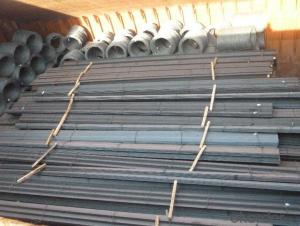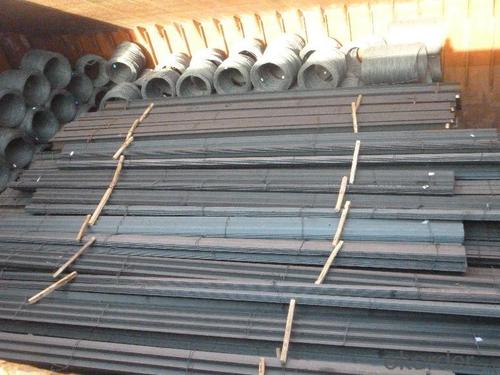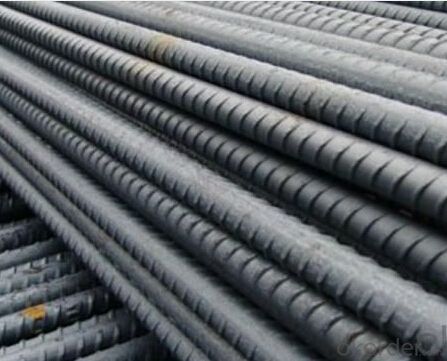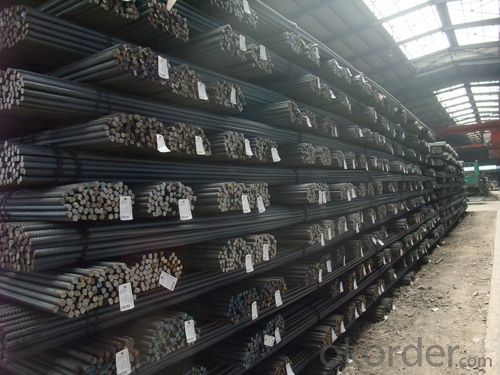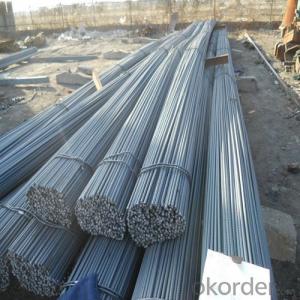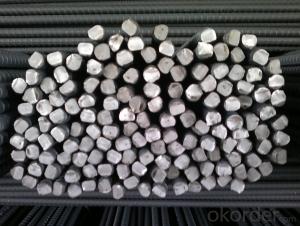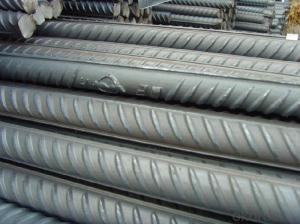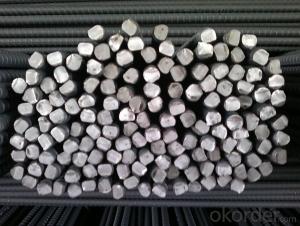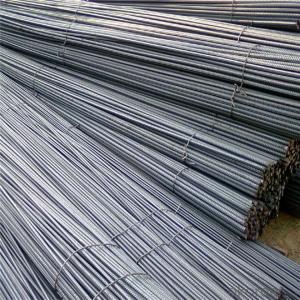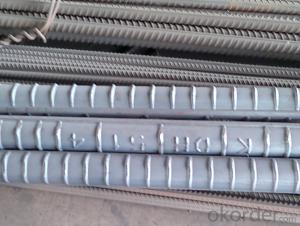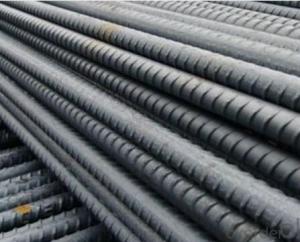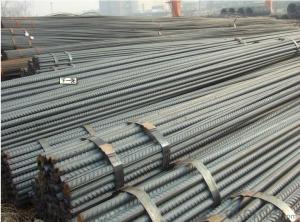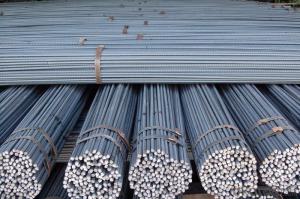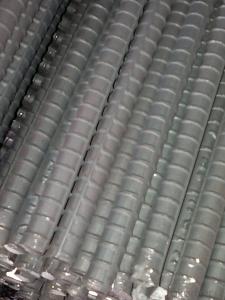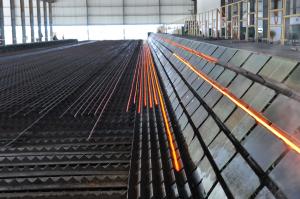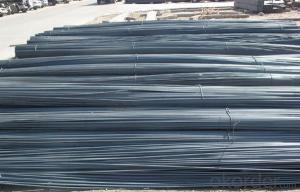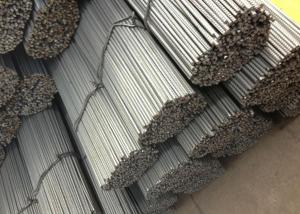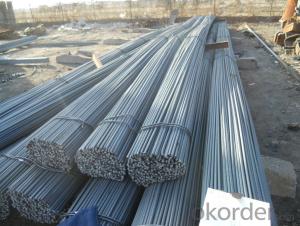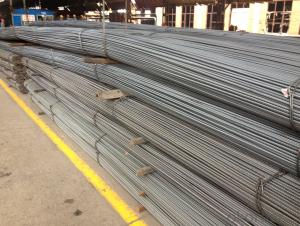ASTM STANDARD HIGH QUALITY HOT ROLLED REBAR
- Loading Port:
- Tianjin
- Payment Terms:
- TT OR LC
- Min Order Qty:
- 50 m.t.
- Supply Capability:
- 100000 m.t./month
OKorder Service Pledge
OKorder Financial Service
You Might Also Like
Product Description:
Appearance: Black
Technique: Slitting hot rolled steel coil
Grade: Q235, Q195,A36 SS400 S235jr.St37-2
Standard: AISI,GB,DIN,ASTM,EN,JIS
Length: 6m, 9m, 12m or as your requirement.
Width: 10mm-1010mm
Thickness: 1.5mm-20mm
Business type: big manufacture
Place of origin: Tianjin China (Mainland)
Packaging Details: In bundles for exporting and sea worthy
Delivery Detail: Within 15-35 days after receiving L/C or deposite T/T
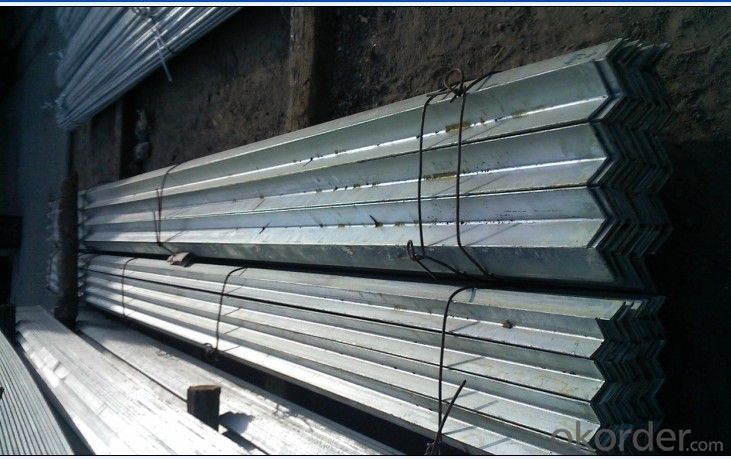
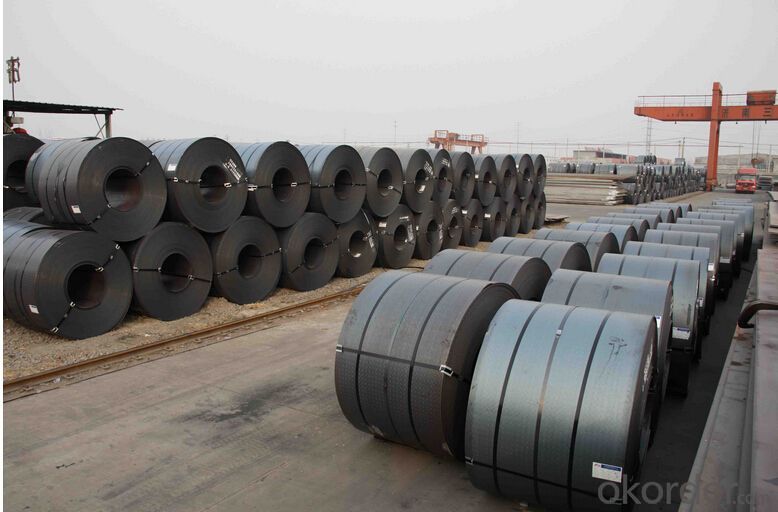
General specification as below:
Flat Bar Specification | |||
Width (mm) | Thickness (mm) | Length (m) | Theoretical Weight (kg/m) |
20 | 2.0 | 6/9/12 | 0.31 |
20 | 2.5 | 6/9/12 | 0.39 |
20 | 2.75 | 6/9/12 | 0.43 |
25 | 2.5 | 6/9/12 | 0.49 |
25 | 3.75 | 6/9/12 | 0.74 |
30 | 2.5 | 6/9/12 | 0.59 |
30 | 3.5 | 6/9/12 | 0.82 |
30 | 9.75 | 6/9/12 | 2.30 |
40 | 3.5 | 6/9/12 | 1.10 |
40 | 4.75 | 6/9/12 | 1.50 |
40 | 11.75 | 6/9/12 | 3.69 |
50 | 2.75 | 6/9/12 | 1.08 |
50 | 4.5 | 6/9/12 | 1.77 |
50 | 9.75 | 6/9/12 | 3.83 |
60 | 5.5 | 6/9/12 | 2.60 |
60 | 7.5 | 6/9/12 | 3.53 |
60 | 11.5 | 6/9/12 | 5.42 |
80 | 5.5 | 6/9/12 | 3.45 |
80 | 7.5 | 6/9/12 | 4.71 |
80 | 11.75 | 6/9/12 | 7.38 |
100 | 3.25 | 6/9/12 | 2.55 |
100 | 4.75 | 6/9/12 | 3.73 |
100 | 7.5 | 6/9/12 | 5.89 |
120 | 9.75 | 6/9/12 | 9.18 |
120 | 11.75 | 6/9/12 | 11.07 |
150 | 9.75 | 6/9/12 | 11.48 |
150 | 11.5 | 6/9/12 | 13.54 |
150 | 13.5 | 6/9/12 | 15.90 |
160 | 11.75 | 6/9/12 | 14.76 |
200 | 9.5 | 6/9/12 | 14.92 |
250 | 5.75 | 6/9/12 | 11.28 |
340 | 7.75 | 6/9/12 | 20.68 |
Products Advantages
1. high quality competitive price and Accurate in size
2. high dimensional accuracy
3. Guaranteed raw material
4.high utilization rate of material
5.convenient in construction, saving much time and labor
6. high mechanical strength
Application: Widely used for construction, Ship building, Machinery manufacturing ,steel structure,agriculture and steel grating.
- Q: How long do steel rebars last?
- Steel rebars have a lifespan of approximately 50 to 100 years, depending on factors such as environmental conditions, maintenance, and quality of the steel.
- Q: Can steel rebars be used in dams and reservoirs construction?
- Yes, steel rebars can be used in dams and reservoirs construction. Steel rebars provide the necessary strength and reinforcement to withstand the immense pressure and load exerted by water in such structures.
- Q: What is the effect of exposure to extreme temperatures on steel rebars?
- Exposure to extreme temperatures can have a significant effect on steel rebars. When exposed to high temperatures, steel rebars can undergo thermal expansion and lose their strength, leading to potential structural failures. On the other hand, exposure to extremely low temperatures can cause steel rebars to contract, potentially leading to cracking and brittle behavior. Therefore, it is crucial to consider temperature effects when designing structures that incorporate steel rebars and implement appropriate measures to mitigate these effects.
- Q: How do steel rebars improve the ductility of a structure?
- By reinforcing and resisting tension forces, steel rebars enhance the ductility of a structure. When external loads, like earthquakes or strong winds, are applied to a structure, it undergoes tensile stresses, which can result in cracking and failure. However, the inclusion of steel rebars, typically composed of high-strength steel, in concrete structures improves their capacity to withstand and distribute these forces. The presence of rebars in the concrete boosts its tensile strength, enabling it to withstand deformation and cracking. When the structure faces tension, the rebars bear the majority of the load, preventing the concrete from collapsing. This redistribution of forces leads to increased ductility, which refers to a material's ability to undergo deformation without breaking. Moreover, steel rebars also fortify the structural integrity of a building by hindering the propagation of cracks. As the concrete cracks under tension, the rebars act as a barrier, confining the growth of these cracks and preventing them from spreading throughout the structure. This containment of cracks enhances the overall resilience of the building, minimizing the risk of catastrophic failure. In conclusion, steel rebars are vital in enhancing the ductility of a structure by improving tensile strength, redistributing forces, and limiting crack propagation. By incorporating rebars into concrete, engineers can design and construct structures capable of withstanding various external forces, assuring the safety and longevity of the building.
- Q: What are the international standards for steel rebars?
- Various organizations and bodies, such as the International Organization for Standardization (ISO), the American Society for Testing and Materials (ASTM), and the European Committee for Standardization (CEN), set the international standards for steel rebars. ISO establishes standards for steel rebars through ISO 15630, which covers both hot-rolled and cold-worked rebars. This standard outlines the requirements for the chemical composition, mechanical properties, dimensions, and tolerances of rebars used in reinforced concrete structures. ASTM has developed multiple standards for steel rebars, such as ASTM A615/A615M and ASTM A706/A706M. ASTM A615/A615M focuses on deformed and plain carbon-steel rebars for concrete reinforcement, specifying the chemical composition, mechanical properties, dimensions, and marking requirements. On the other hand, ASTM A706/A706M concentrates on low-alloy steel rebars with improved weldability, suitable for concrete structures that require welding. In Europe, CEN has established the primary standard for steel rebars as the Eurocode 2 (EN 1992-1-1). This code provides design rules for the structural use of concrete and includes guidelines for the selection and utilization of rebars. Additionally, CEN has also developed EN 10080, which specifies the requirements for steel rebars used in concrete reinforcement, covering chemical composition, mechanical properties, dimensions, and tolerances. These international standards guarantee the quality and consistency of steel rebars utilized in construction projects worldwide. Complying with these standards helps ensure the safety and reliability of reinforced concrete structures by providing guidelines for material properties, manufacturing processes, and quality control measures.
- Q: What is the cost of steel rebars?
- The cost of steel rebars can vary depending on various factors such as the grade of steel, market conditions, and location. On average, the cost of steel rebars ranges from $500 to $800 per metric ton. However, it is important to note that prices can fluctuate due to factors like supply and demand, raw material costs, and any additional taxes or tariffs imposed on steel imports. It is recommended to contact local suppliers or check market reports for the most up-to-date and accurate pricing information.
- Q: How do steel rebars affect the thermal properties of a structure?
- Steel rebars can increase the thermal conductivity of a structure, making it more prone to heat transfer.
- Q: Can steel rebars be used in structures with limited construction budget?
- Yes, steel rebars can be used in structures with a limited construction budget. Steel rebars are commonly used in construction due to their strength and durability. They provide structural support and reinforcement to concrete, making it more resistant to tension and cracking. While steel rebars may have a higher upfront cost compared to other materials, they offer long-term cost savings. By using steel rebars, structures can have a longer lifespan, reducing the need for frequent repairs or replacements. Additionally, steel rebars can be prefabricated, saving time and labor costs during the construction process. Furthermore, steel rebars can be easily recycled, making them a sustainable choice for construction projects. Recycling steel reduces the need for extracting raw materials and decreases the environmental impact. Overall, steel rebars are an excellent choice for structures with limited construction budgets. They offer durability, longevity, and cost savings in the long run, making them a cost-effective option for construction projects.
- Q: Can steel rebars be used in structures with limited foundation support?
- Steel rebars are suitable for structures with limited foundation support. They are frequently employed as reinforcement in concrete structures to augment their strength and longevity. In situations where the foundation support is insufficient, steel rebars aid in distributing the load evenly across the structure, thereby reducing the strain on the foundation. Moreover, incorporating steel rebars can enhance the overall stability of the structure. It is crucial, however, to emphasize that a qualified engineer should be responsible for designing and placing the rebars in order to ensure their seamless integration into the structure and their ability to effectively bear the load.
- Q: Can steel rebars be used in reinforced masonry?
- Yes, steel rebars can be used in reinforced masonry. Steel rebars are commonly used to enhance the strength and stability of masonry structures, such as walls or columns. The rebars are embedded within the masonry, providing added tensile strength and preventing cracking or failure under load.
Send your message to us
ASTM STANDARD HIGH QUALITY HOT ROLLED REBAR
- Loading Port:
- Tianjin
- Payment Terms:
- TT OR LC
- Min Order Qty:
- 50 m.t.
- Supply Capability:
- 100000 m.t./month
OKorder Service Pledge
OKorder Financial Service
Similar products
Hot products
Hot Searches
Related keywords
